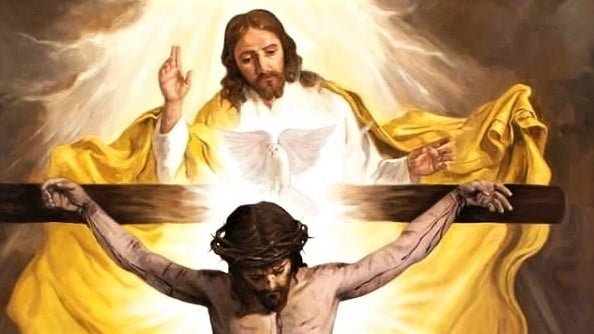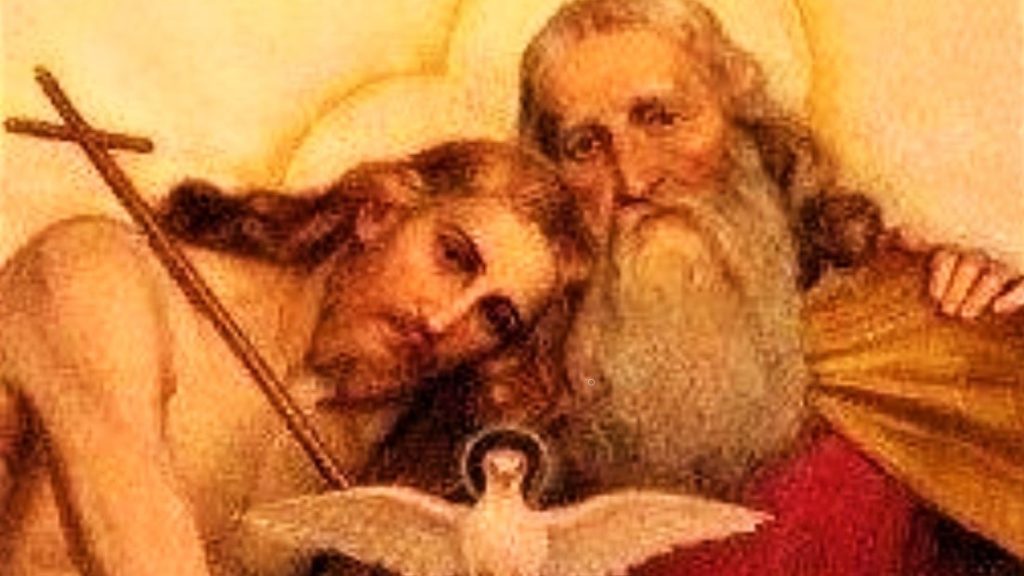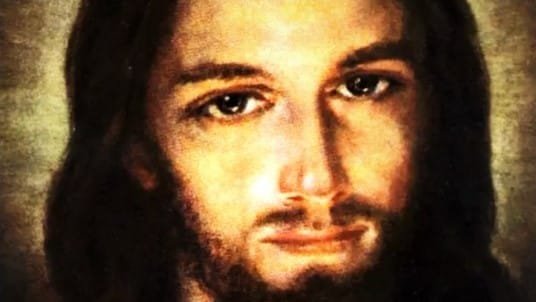Wednesday, 4th week of Easter
DAILY GOSPEL COMMENTARY:
“WHOEVER SEES ME, SEES THE ONE WHO SENT ME.” (Jn 12:44-50).

READING I
Acts 12:24–13:5a
The word of God continued to spread and grow.
After Barnabas and Saul completed their relief mission, they returned to Jerusalem, taking with them John, who is called Mark.
Now there were in the Church at Antioch prophets and teachers: Barnabas, Symeon who was called Niger, Lucius of Cyrene, Manaen who was a close friend of Herod the tetrarch, and Saul. While they were worshiping the Lord and fasting, the Holy Spirit said, “Set apart for me Barnabas and Saul for the work to which I have called them.” Then, completing their fasting and prayer, they laid hands on them and sent them off.
So they, sent forth by the Holy Spirit, went down to Seleucia and from there sailed to Cyprus. When they arrived in Salamis, they proclaimed the word of God in the Jewish synagogues.
RESPONSORIAL PSALM
R. O God, let all the nations praise you!
Or: Alleluia.
Confiteántur tibi pópuli, Deus, confiteántur tibi pópuli omnes.
May God have pity on us and bless us;
may he let his face shine upon us.
So may your way be known upon earth;
among all nations, your salvation.
R. O God, let all the nations praise you!
Or: Alleluia.
May the nations be glad and exult
because you rule the peoples in equity;
the nations on the earth you guide.
R. O God, let all the nations praise you!
Or: Alleluia.
May the peoples praise you, O God;
may all the peoples praise you!
May God bless us,
and may all the ends of the earth fear him!
R. O God, let all the nations praise you!
Or: Alleluia.
ALLELUIA
I am the light of the world, says the Lord: the man who follows me will have the light of life.
Gospel of Wednesday, 4th week of Easter.
Whoever sees me, sees the one who sent me
Jn 12:44-50
Jesus cried out and said, “Whoever believes in me believes not only in me but also in the one who sent me, and whoever sees me sees the one who sent me. I came into the world as light, so that everyone who believes in me might not remain in darkness. And if anyone hears my words and does not observe them, I do not condemn him, for I did not come to condemn the world but to save the world. Whoever rejects me and does not accept my words has something to judge him: the word that I spoke, it will condemn him on the last day, because I did not speak on my own, but the Father who sent me commanded me what to say and speak. And I know that his commandment is eternal life. So what I say, I say as the Father told me.”
GOSPEL COMMENTARY from the Navarre Bible, Commentary to the Gospel of St. John (with permission)
44-50 SUMMARY OF IDEAS
- With these verses St John brings to an end his account of our Lord’s public ministry.
- He brings together certain fundamental themes developed in previous chapters — the need for faith in Christ (v. 44);
- the Father and the Son are one yet distinct (v. 45);
- Jesus is Light and Life of the world (vv. 46, 50);
- men will be judged in accordance with whether they accept or reject the Son of God (vv. 47-49).
- The chapters which follow contain Jesus’ teaching to his Apostles at the Last Supper, and the accounts of the Passion and Resurrection.
45 and whoever sees me sees the one who sent me.
- Christ, the Word Incarnate, is one with the Father (cf. Jn 10:30); “he reflects the glory of God” (Heb 1:3); “he is the image of the invisible God” (Col 1:15). In Jn 14:9 Jesus expresses himself in almost the same words: “He who has seen me has seen the Father”.
- At the same time as he speaks of his oneness with the Father, we are clearly shown the distinction of persons — the Father who sends, and the Son who is sent.
- In Christ’s holy human nature his divinity is, as it were, hidden, that divinity which he possesses with the Father in the unity of the Holy Spirit (cf. Jn 14:7-1 1).
- In theology “circumincession” is the word usually used for the fact that, by virtue of the unity among the three Persons of the Blessed Trinity, “the Father is wholly in the Son and wholly in the Holy Spirit; the Son wholly in the Father and wholly in the Holy Spirit; the Holy Spirit wholly in the Father and wholly in the Son” (Council of Florence, Decree Pro Jacobitis, Dz-Sch, 1331).
47 And if anyone hears my words and does not observe them, I do not condemn him, for I did not come to condemn the world but to save the world.
- Christ has come to save the world by offering himself in sacrifice for our sins and bringing us supernatural life (cf. Jn 3:17).
- But he has also been made Judge of the living and the dead (cf. Acts 10:42):
- he passes sentence at the particular judgment which happens immediately after death,
- and at the end of the world, at his second coming or Parousia, at the universal judgment (cf. Jn 5:22; 8:15-16; and note on Jn 15:22-25).
VIDEO REFLECTION TOPIC: ARE YOU WELL-PREPARED TO SUCCESSFULLY COMPLETE YOUR MISSION FOR CHRIST?
In today’s reading, Paul embarks on the first of his three great missionary journeys. He is still called Saul at this point in Acts, perhaps, because he was still on probation as the leaders of the Church wanted him to prove his conversion was genuine. Remember, he persecuted many Christians previously.
Saul and Barnabas just returned to Antioch from Jerusalem to bring supplies to their starving Christian brethren, something like establishing their own Community Pantry.
We are all missionaries on our own individual journey through life.
FOR THE EASTER READING OF WEDNESDAY IN THE 4TH WEEK OF EASTER: THE UNITY OF THE FAITHFUL IN GOD THROUGH THE INCARNATION AND THE EUCHARIST (ST. HILARY OF POITIERS), read HERE.
Stay updated: subscribe by email for free TO OUR NEW WEBSITE www.catholicsstrivingforholiness.org (PUT YOUR EMAIL IN THE SUBSCRIBE WIDGET).
We are also in www.fb.com/Catholicsstrivingforholiness. Kindly help more people in their Christian life by liking our page and inviting your family, friends and relatives to do so as well. Thanks in advance and God bless you and your loved ones! Fr. Rolly Arjonillo

